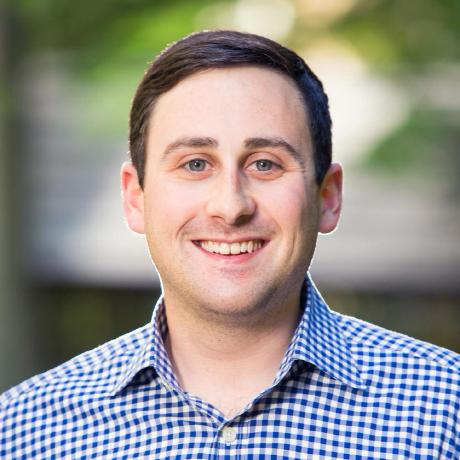 Just because Steve Wozniak takes a shot at Apple doesn't mean he's wrong. Woz recently declared that the current generation of wearables, including the Apple Watch, are "not a compelling purchase." He says that his Apple Watch is "an expense that has brought me a few extra niceties in my life," but generally is frustrated that wearables don't have enough computing power and are mostly still dependent on a linked smartphone for many of their functions. He's not alone in his skepticism. A trio of analysts from Pacific Coast Securities see trouble ahead for many wearable manufacturers, as "value creation shifts away from the thing itself, while the associated ecosystem, software and/or service tend to deliver the real intelligence that the things provide"...
Just because Steve Wozniak takes a shot at Apple doesn't mean he's wrong. Woz recently declared that the current generation of wearables, including the Apple Watch, are "not a compelling purchase." He says that his Apple Watch is "an expense that has brought me a few extra niceties in my life," but generally is frustrated that wearables don't have enough computing power and are mostly still dependent on a linked smartphone for many of their functions. He's not alone in his skepticism. A trio of analysts from Pacific Coast Securities see trouble ahead for many wearable manufacturers, as "value creation shifts away from the thing itself, while the associated ecosystem, software and/or service tend to deliver the real intelligence that the things provide"...
News
How Does an Entrepreneur Help His Fiancé Fight Cancer? With Open Source Tools, of Course.
 My name is Jorge. I started Kanteron Systems, a medical imaging open-source software company, in Valencia (Spain) in 2005. In 2011 I moved to New York to open our US subsidiary. While living in New York, I started dating a woman that was battling breast cancer. Her name is Stephanie. Stephanie’s oncologist was at Beth Israel Cancer Center, her surgeon at Mount Sinai St. Luke’s Hospital, and her radiation therapist at Memorial Sloan-Kettering Cancer Center (MSKCC). As I held her hand through the process twice (she had surgery, and a recurrence a year later) and met with her doctors, I saw first-hand how broken many cancer-care processes involving data and medical imaging sharing were.
My name is Jorge. I started Kanteron Systems, a medical imaging open-source software company, in Valencia (Spain) in 2005. In 2011 I moved to New York to open our US subsidiary. While living in New York, I started dating a woman that was battling breast cancer. Her name is Stephanie. Stephanie’s oncologist was at Beth Israel Cancer Center, her surgeon at Mount Sinai St. Luke’s Hospital, and her radiation therapist at Memorial Sloan-Kettering Cancer Center (MSKCC). As I held her hand through the process twice (she had surgery, and a recurrence a year later) and met with her doctors, I saw first-hand how broken many cancer-care processes involving data and medical imaging sharing were.
- 1 comment
- News
5 Eclipse Tools for Processing and Visualizing Data
 Gone are the days of scientists processing data by hand. Scientific tools are rapidly scaling to meet the increasing demands of their users, both in terms of complexity and sheer volumes of data. In various domains, highly sophisticated scientific workbenches have been developed to enable scientists and researchers to quickly make sense of their data in a reproducible way. Several scientific workbenches have been built on top of the Eclipse Rich Client Platform (RCP) framework and offer up open source environments for processing and visualizing data. The companies and institutions behind these workbenches got together to collaborate on these tools, and so the Eclipse Science Working Group was born...
Gone are the days of scientists processing data by hand. Scientific tools are rapidly scaling to meet the increasing demands of their users, both in terms of complexity and sheer volumes of data. In various domains, highly sophisticated scientific workbenches have been developed to enable scientists and researchers to quickly make sense of their data in a reproducible way. Several scientific workbenches have been built on top of the Eclipse Rich Client Platform (RCP) framework and offer up open source environments for processing and visualizing data. The companies and institutions behind these workbenches got together to collaborate on these tools, and so the Eclipse Science Working Group was born...
- Login to post comments
- News
Where Next for PLOS: Working Together to Make Waves in Scientific Communication
 What began as a ripple with the goal to make research accessible and free has propagated into over 157 funder and 500 university policies that provide millions of readers around the world increasing opportunities to make important, positive impacts on global health, scientific discovery, policy and education. This wave of Open Access–and now Open Science–moving through the scientific community has created a scientific publishing ecosystem that spreads beyond researchers, reviewers, editors and funders to include technologists, institutions, patients, entrepreneurs and librarians...
What began as a ripple with the goal to make research accessible and free has propagated into over 157 funder and 500 university policies that provide millions of readers around the world increasing opportunities to make important, positive impacts on global health, scientific discovery, policy and education. This wave of Open Access–and now Open Science–moving through the scientific community has created a scientific publishing ecosystem that spreads beyond researchers, reviewers, editors and funders to include technologists, institutions, patients, entrepreneurs and librarians...
- Login to post comments
- News
The Missed Opportunity That is the White House Open Source Policy
 In September 2014, the president committed to creating a federal open source policy that improved citizen access to software developed by the Federal government. I wrote back then about what I was optimistically hoping to see. Today, public comments close on a federal source code policy that initiates a three-year pilot program to make as little as 20% of new government software available to the taxpayers who fund it and for whom the software’s intended to benefit. In a world increasingly dominated by the success of open source, requiring that the world’s largest producer of code releases only 20% of its software is a missed opportunity to modernize government that fails to live up to the president’s National Action Plan commitments.
In September 2014, the president committed to creating a federal open source policy that improved citizen access to software developed by the Federal government. I wrote back then about what I was optimistically hoping to see. Today, public comments close on a federal source code policy that initiates a three-year pilot program to make as little as 20% of new government software available to the taxpayers who fund it and for whom the software’s intended to benefit. In a world increasingly dominated by the success of open source, requiring that the world’s largest producer of code releases only 20% of its software is a missed opportunity to modernize government that fails to live up to the president’s National Action Plan commitments.
- Login to post comments
- News
Say Goodbye to Your Smartwatch
- Login to post comments
- News
Ripple: Making Waves in Healthcare IT
 The Ripple Program, based out of Leeds and building upon the lessons learned from the Leeds Care Record, has recently been set up to positively disrupt health and social care towards those ends. Importantly the ethos of “open” is at the heart of the work and for very good reason. It is clear that interoperability between Health IT systems will drive real change but, what is even clearer is that only an open source approach will positively disrupt this health and social care landscape across the NHS and across the globe. Funded by NHS England and hosted by Leeds City Council, the focus of Ripple is to support health and social care organizations by providing six open source elements which can be used individually, in combination or as a whole, and are consistent patterns of need when embarking on an work towards healthcare improvement with information technology.
The Ripple Program, based out of Leeds and building upon the lessons learned from the Leeds Care Record, has recently been set up to positively disrupt health and social care towards those ends. Importantly the ethos of “open” is at the heart of the work and for very good reason. It is clear that interoperability between Health IT systems will drive real change but, what is even clearer is that only an open source approach will positively disrupt this health and social care landscape across the NHS and across the globe. Funded by NHS England and hosted by Leeds City Council, the focus of Ripple is to support health and social care organizations by providing six open source elements which can be used individually, in combination or as a whole, and are consistent patterns of need when embarking on an work towards healthcare improvement with information technology.
- Login to post comments
- Feature Story
Hospitals Paying the Price of Not Investing in IT Security
 The fact is, most of healthcare simply doesn’t spend enough on data security. In a study conducted by HIMSS Analytics and Symantec that polled 115 IT and security professionals in hospitals with more than 100 beds, more than half (52 percent) said their organization dedicated between zero and 3 percent of the IT budget to security. Just 28 percent said they spent between 3 and 6 percent of IT budget on security. “All of this makes healthcare organizations rich targets for cybercriminals,” reads the study summary.
The fact is, most of healthcare simply doesn’t spend enough on data security. In a study conducted by HIMSS Analytics and Symantec that polled 115 IT and security professionals in hospitals with more than 100 beds, more than half (52 percent) said their organization dedicated between zero and 3 percent of the IT budget to security. Just 28 percent said they spent between 3 and 6 percent of IT budget on security. “All of this makes healthcare organizations rich targets for cybercriminals,” reads the study summary.
- Login to post comments
- News
Storming the Government Castle
 Open source software seems like a perfect fit for government IT projects. Developers can take advantage of existing code bases and, it's hoped, mold that code to their needs quickly and at less cost than developing code from scratch. Over the last few years, governments in the U.S. and abroad have been more closely embracing open source. However, agencies at all levels of U.S. government are still wary of open source and can be reluctant to adopt it. It's still not easy for government projects to use open source or for developers employed in the public sector to contribute their work to open source project...
Open source software seems like a perfect fit for government IT projects. Developers can take advantage of existing code bases and, it's hoped, mold that code to their needs quickly and at less cost than developing code from scratch. Over the last few years, governments in the U.S. and abroad have been more closely embracing open source. However, agencies at all levels of U.S. government are still wary of open source and can be reluctant to adopt it. It's still not easy for government projects to use open source or for developers employed in the public sector to contribute their work to open source project...
- Login to post comments
- News
How Bot That!
 About a year and a half ago I wrote I Hate Apps, expressing my concerns that apps had outlived their usefulness due to how they are cluttering up our devices, and found I wasn't alone in this attitude. Now Facebook is doing something about it, with their vision that they can use "bots" within their Messenger app to eliminate the need for many standalone apps. Indeed, as David Marcus, the head of messaging at Facebook, told Wired: "Everyone wanted websites when the web was launched. And then everyone wanted apps. This is the start of a new era"...
About a year and a half ago I wrote I Hate Apps, expressing my concerns that apps had outlived their usefulness due to how they are cluttering up our devices, and found I wasn't alone in this attitude. Now Facebook is doing something about it, with their vision that they can use "bots" within their Messenger app to eliminate the need for many standalone apps. Indeed, as David Marcus, the head of messaging at Facebook, told Wired: "Everyone wanted websites when the web was launched. And then everyone wanted apps. This is the start of a new era"...
- Login to post comments
- News
Print Me a New Arm, Please - Bionics and 3D Printing add to a Revolution in Medicine
 I just realized that I hadn't ever really written about two hot trends in health care: bionics and 3D printing. I better get to it before they become mainstream, or are superseded by something even newer. Let start with bionics. According to Merriam-Webster, bionic means "having normal biological capability or performance enhanced by or as if by electronic or electromechancial devices." Bionics is the science of this...Bionics is estimated to be an $8b market (2014), with a projected 13.2% CAGR that would bring it to $20.5b by 2020. The artificial kidney market is said to account for some 60% of the market, with livers expected to be the fastest growing segment over the period.
I just realized that I hadn't ever really written about two hot trends in health care: bionics and 3D printing. I better get to it before they become mainstream, or are superseded by something even newer. Let start with bionics. According to Merriam-Webster, bionic means "having normal biological capability or performance enhanced by or as if by electronic or electromechancial devices." Bionics is the science of this...Bionics is estimated to be an $8b market (2014), with a projected 13.2% CAGR that would bring it to $20.5b by 2020. The artificial kidney market is said to account for some 60% of the market, with livers expected to be the fastest growing segment over the period.
- Login to post comments
- News